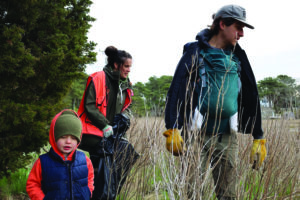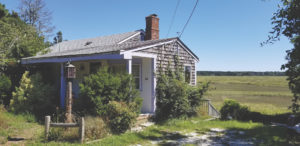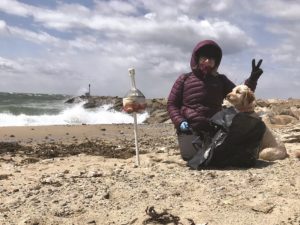EASTHAM — The Eastham Conservation Foundation celebrated Earth Day a week early on April 16 with its fourth annual Earth Day Great Marsh Cleanup. And clean up they did, with a crew of 10 volunteers pulling over 440 pounds of trash and 1,300 pounds of wood, metal, and tires from the marsh.



